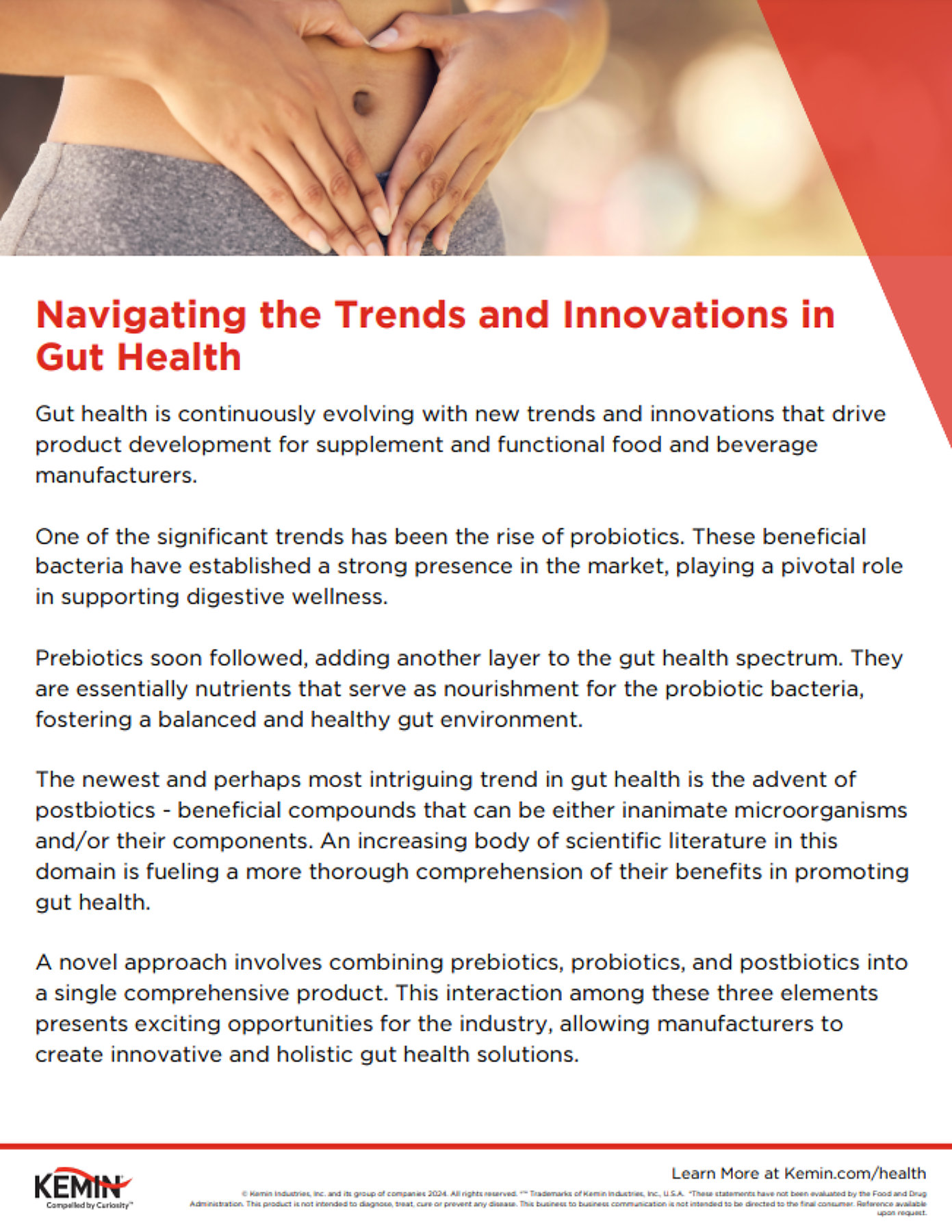In the pursuit of healthy aging, consumers are increasingly recognizing the significance of maintaining a youthful digestive system. Aging encompasses more than just the passage of time; it reflects the culmination of lifestyle choices impacting various bodily functions.1-2 At Kemin, we are compelled by curiosity to explore the intricate dynamics of digestive aging and offer solutions to support optimal health.
What is Digestive Aging™?
As we age, some signs are obvious like finding some gray hairs for the first time or feeling some added aches and pains that weren’t there a few years ago. But just as the skin reflects a lifetime of sun exposure, the culmination of years of effects from diet and other lifestyle choices increases the risk of something going awry in the digestive system.3-6 The gut and its components, including the intestinal barrier, resident immune cells, and microbiome, are important not only to one’s overall health, but to the rate at which one ages.2,3,4,7,8
The Role of the Gut in Healthy Aging
The gut is often overlooked in discussions of aging but it plays a pivotal role in overall health. When we eat food, we are introducing external things into our bodies. As the body's primary interface with the external environment, the gut's integrity directly influences nutrient absorption, immune function, and even cognitive health.35 However, over time, factors such as diet, medication use, and aging itself can disrupt the delicate balance of the gut ecosystem, leading to a phenomenon known as gut dysbiosis.36
Understanding Gut Dysbiosis
Gut dysbiosis, characterized by an imbalance in the gut microbiome, is emerging as a key hallmark of aging.2 This imbalance not only compromises digestive health but also intensifies systemic inflammation and weakens immune responses, contributing to a host of age-related ailments.4 Recognizing the importance of addressing gut dysbiosis, researchers are exploring innovative strategies to promote healthy aging from within.
Supporting Healthy Digestive Aging with Kemin
Kemin offers science-backed ingredients shown to support areas affected by digestive aging, including:
ButiShield™: An encapsulated form of calcium butyrate providing a controlled release of butyric acid to support gut health.34 Studies have demonstrated its efficacy in bolstering intestinal barrier function and maintaining a healthy gut environment.9-13
BetaVia™: Algae-sourced beta 1,3 glucans that help to prime key immune cells, shape the microbiome, and protect intestinal barrier integrity. By modulating immune responses and promoting microbiome diversity, BetaVia™ offers comprehensive support for digestive health.14-33
Conclusion
At Kemin, we remain committed to understanding digestive aging and providing innovative solutions to support lifelong wellness. With our expertise and cutting-edge ingredients like ButiShield™ and BetaVia™, we invite formulators to join us in shaping the future of digestive health supplementation.
Explore how Kemin's digestive health solutions can elevate your product offerings and meet the evolving needs of health-conscious consumers.




